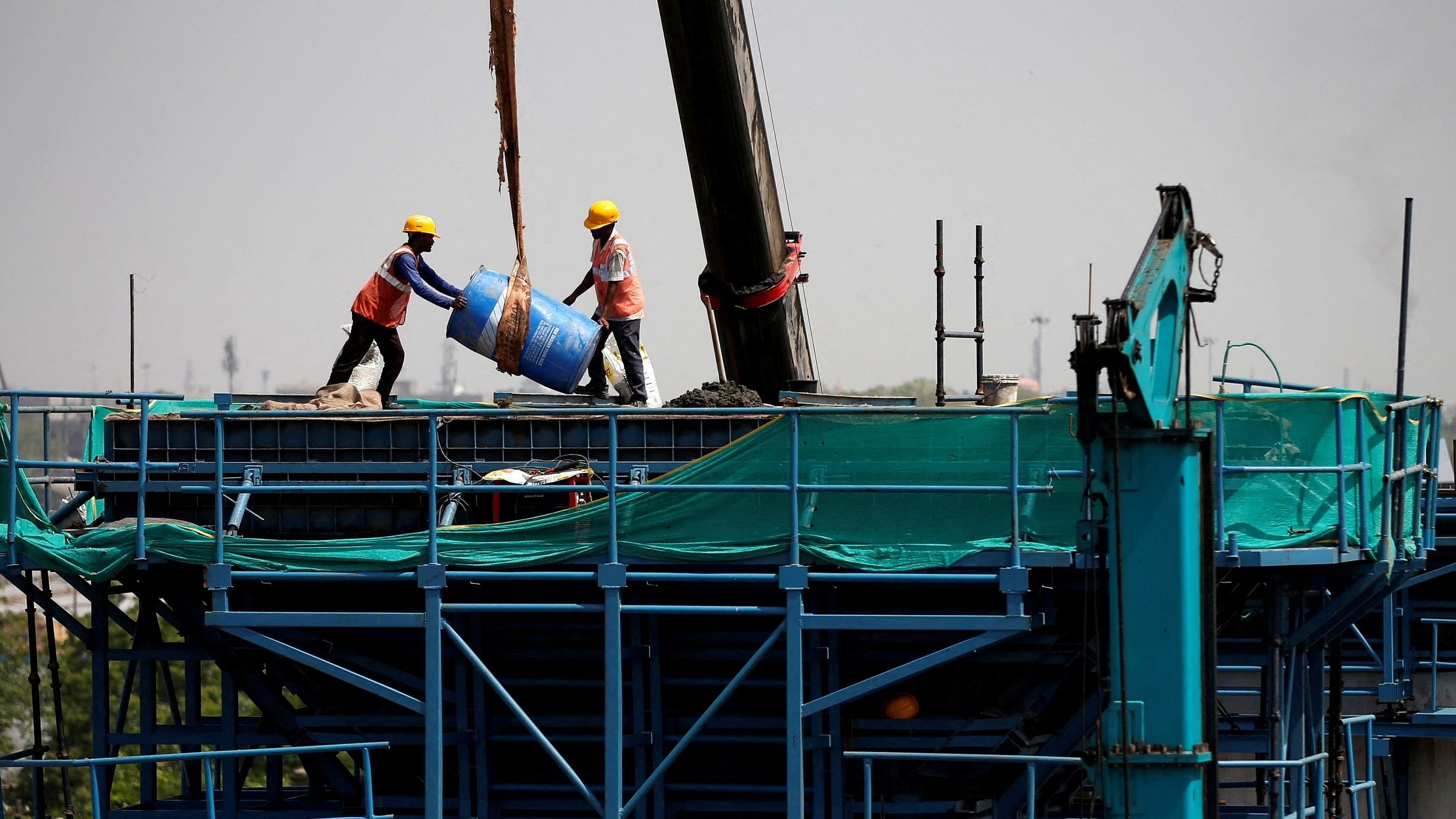
Labourers work at a construction site. (Representative image)
Credit: Reuters File Photo
New Delhi: Even as New Delhi overlooks Beijing’s disapproval and subtly expands its relations with Taipei, a comment by the Taiwan's labour minister on the recently concluded agreement for hiring workers from India has sparked a controversy.
The Ministry of Foreign Affairs of the Government of Taiwan on Monday issued a statement, apologising for the remark.
Taiwan’s labour minister Hsu Ming-chun said that Taipei had plans to recruit migrant workers from the northeastern region of India, not only because “their skin colour and eating habits were similar to Taiwanese,” but also due to their beliefs in Christianity and their skills in manufacturing, construction, and agriculture”. Her comment drew flak from social media users who found it to have racial and communal overtones.
New Delhi also informally conveyed to Taipei its displeasure over the remark of the labour minister of Taiwan.
The Ministry of Foreign Affairs of the Government of Taiwan on Monday resorted to damage-control measures and issued a statement. “Recently, in discussions with relevant sectors in Taiwan’s society, certain government agencies have made remarks that were not entirely appropriate. This has led to criticism among Taiwan’s society, Indian friends, and other international stakeholders,” it stated, adding: “The government expresses sincere apologies over this situation. It will earnestly review its actions and make needed improvements going forward.”
With Taipei seeking to expand the source of the island nation’s workforce beyond the Southeast Asian nations, it signed a Memorandum of Understanding (MoU) with New Delhi on February 16 last – laying the framework for recruiting workers from India. The details of the implementation of the MoU have not yet been worked out.
The MoU was another sign of expanding ties between New Delhi and Taipei amid China’s belligerence and military muscle-flexing around Taiwan, which escalated tension between the communist country and the United States.
Hsu Ming-chun made the controversial comment during an interview on a YouTube channel. She stated that the India-Taiwan agreement had left it to Taiwan to decide the number and the region of origin of the migrant workers from India. “Since we have to adapt to each other, the number will not be too large at the beginning, and it will be small scale and small amount at the beginning”. She also said that the Ministry of Foreign Affairs of the island nation’s government had helped assess that people from the northeastern region of India would be recruited for jobs in Taiwan.
Taiwan, which has an aging society, is keen to recruit workers from India to meet the growing demand of its manufacturing, construction, agriculture, and other industries.
New Delhi and Taipei agreed that a small batch of migrant workers from India would be first taken to Taiwan and, if the pilot project went well, larger-scale recruitment would commence. A rumour about Taiwan planning to recruit 100,000 workers from India had started doing the rounds before the island nation’s elections earlier this year. The rumour had drawn flak for the ruling Democratic Progressive Party’s government from the opposition Kuomintang a.k.a. Chinese Nationalist Party, which alleged that the move would take away employment opportunities for the Taiwanese. The rumour was dismissed by the DPP, which eventually won the presidential elections.
India, like most of the other nations, has been adhering to the One-China policy since 1949, recognizing only the People's Republic of China. That is why India and Taiwan do not have formal diplomatic and consular missions in their respective countries. The One-China policy recognizes only the People's Republic of China, which came into existence in 1949 after the communists defeated the nationalists in the civil war of China. It does not recognize the existence of Taiwan (or the Republic of China), where the nationalists retreated to and based the seat of their government after losing to the communists. The India-Taipei Association, headed by a diplomat, functions as New Delhi’s de facto diplomatic and consular mission of India in the capital of Taiwan. The Taipei Economic and Cultural Centre (TECC) in New Delhi similarly serves as the de facto diplomatic and consular mission of Taiwan, officially the Republic of China (RoC), in the capital of India.
China’s April-May 2020 moves to unilaterally change the status quo along its disputed boundary with India in eastern Ladakh and the consequent four-year-long-and-still-unresolved military stand-off between the two sides, however, triggered calls to Prime Minister Narendra Modi’s government in New Delhi to review its policy on Taiwan to send out a message to the communist country. The government, however, has not yet initiated any such move.
